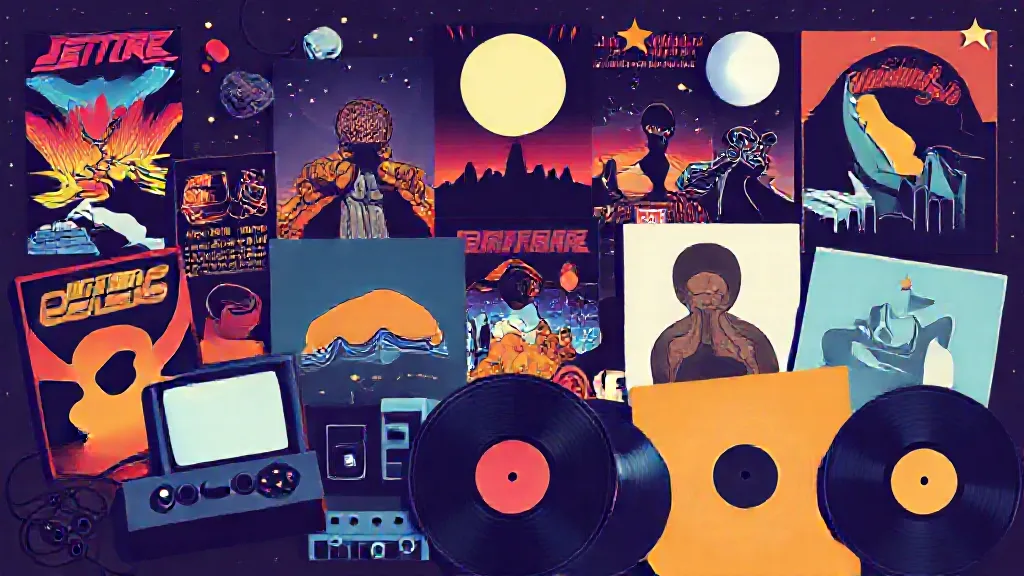Nostalgia is a powerful emotional experience that evokes memories of the past, often accompanied by a sense of longing or wistfulness. In recent years, it has emerged as a significant tool in the entertainment industry, influencing everything from film and television to music and video games. This article explores the multifaceted role of nostalgia in entertainment, examining its psychological underpinnings, cultural significance, and commercial impact.
The Psychological Appeal of Nostalgia
Nostalgia serves as a psychological anchor, providing comfort and familiarity in an ever-changing world. According to research published in the journal "Emotion," nostalgia can enhance mood, increase feelings of social connectedness, and even instill a sense of purpose. These psychological benefits make nostalgia an attractive tool for creators looking to connect with audiences on a deeper level.
By tapping into shared memories and experiences, entertainment products can evoke powerful emotions that resonate with viewers and listeners, fostering a sense of community and belonging.
Cultural Significance and Collective Memory
Cultural nostalgia often reflects a collective memory that transcends individual experiences. It can be seen in the resurgence of retro styles, themes, and narratives in contemporary media.
For example, the popularity of 1980s and 1990s aesthetics in films like "Stranger Things" and "It" illustrates how cultural nostalgia can be harnessed to create a sense of nostalgia for an era that many people associate with innocence and simplicity. This phenomenon is not limited to visual media; music from past decades frequently resurfaces in modern playlists, as artists sample or cover classic songs to evoke nostalgia among listeners.
Nostalgia Marketing: A Strategic Approach
The commercial implications of nostalgia are profound.
Nostalgia marketing leverages consumers' emotional connections to the past to drive sales and engagement. Brands frequently employ nostalgic themes in their advertising campaigns, using familiar imagery, music, and references to evoke positive memories and associations. For instance, the return of classic snack foods or the revival of retro gaming consoles taps into consumers' childhood memories, creating a sense of excitement and loyalty.
This strategy not only appeals to older generations but also introduces younger audiences to the cultural touchstones of their predecessors.
The Role of Reboots and Remakes
In the film and television industry, the trend of reboots and remakes exemplifies nostalgia's powerful influence. Franchises like "Ghostbusters," "Jurassic Park," and "Star Wars" have successfully revived interest through updated narratives that retain the essence of the originals.
These projects often attract both original fans and new viewers, creating a cross-generational appeal. The nostalgia associated with these properties can lead to significant box office success and cultural conversations, reinforcing the idea that looking back can be as commercially viable as innovating forward.
Nostalgia in Video Games: A Growing Trend
The video game industry has also embraced nostalgia, with many developers releasing remastered versions of classic games or creating new titles that pay homage to beloved franchises.
Games like "The Legend of Zelda: Link's Awakening" and "Crash Team Racing Nitro-Fueled" have garnered attention not only for their gameplay but also for their nostalgic value. This trend not only satisfies long-time fans but also introduces younger players to the rich history of gaming, fostering a deeper appreciation for the medium.
The Emotional Connection of Soundtracks
Music is perhaps one of the most potent vehicles for nostalgia.
Soundtracks from films and television shows often evoke strong emotional responses, reminding listeners of specific moments in their lives. The use of iconic songs in contemporary media can transport audiences back to their youth, enhancing the overall experience. For example, the resurgence of vinyl records and cassette tapes reflects a longing for the tactile experience of music from previous decades, demonstrating how nostalgia can shape consumer behavior in the music industry.
Challenges and Criticisms of Nostalgia
Despite its many benefits, nostalgia is not without its challenges. Critics argue that an over-reliance on nostalgia can stifle creativity and innovation, leading to a culture of rehashing old ideas rather than exploring new concepts. Additionally, nostalgia can create unrealistic portrayals of the past, glossing over the complexities and challenges of earlier times.
This selective memory can lead to a yearning for a past that may not have been as idyllic as it is often remembered.
Conclusion: The Future of Nostalgia in Entertainment
As we move forward, nostalgia will likely continue to play a significant role in shaping entertainment trends. While it can serve as a bridge between generations and foster emotional connections, it is essential for creators to balance nostalgia with originality.
By doing so, they can harness the power of nostalgia while also pushing the boundaries of storytelling and artistic expression. As audiences continue to seek comfort in familiar narratives, the challenge will be to innovate while honoring the past.
